 Thackery Brown (Faculty Mentor, Assistant Professor, Georgia Tech, Psychology)
Thackery Brown (Faculty Mentor, Assistant Professor, Georgia Tech, Psychology)
Cognitive neuroscience research in Dr. Brown’s MAP Lab is uniquely interdisciplinary: cutting-edge statistical techniques, neuroimaging, virtual reality, and other emergent technologies are brought to bear on understanding the mechanisms that allow humans to remember and navigate their lives.
With these resources, REU participants will investigate big-picture questions about human cognition: how do memories define our concept of who we are? How do we flexibly draw on memories of our past to avoid repeating mistakes and to plan for the future? How can neuroscience explain when and why memory fails, and what role memory plays in real-life errors (e.g., getting lost in the city streets, incorrectly planning an event, or providing mistaken information to a jury)?
REU participants will have the opportunity to learn fundamental knowledge needed for contemporary cognitive neuroscience research, including neuroimaging techniques, machine learning, programming, analysis of psychological and behavioral measures, and experimental manipulations of stress and emotion to study how hormonal responses influence brain function.
The MAP Lab has supported over 28 past and present undergraduate researchers from majors including psychology, neuroscience, computer science, biomedical engineering, and biochemistry – with numerous senior theses completed and students earning authorships on peer reviewed publications - providing an active and stimulating peer community for REU trainees. https://maplab.gatech.edu/
 Young-Hui Chang (Faculty Mentor, Professor, Georgia Tech, Biological Sciences)
Young-Hui Chang (Faculty Mentor, Professor, Georgia Tech, Biological Sciences)
Dr. Chang directs the Georgia Tech Comparative Neuromechanics Lab, whose mission is to increase understanding of the biomechanical and neural principles of movement control. He conducts experimental studies of human and animal movement to identify task representations governing movement control policies. His research uses mathematical analyses (linear dynamics approaches such as the uncontrolled manifold analysis) and experimental studies of pathology (e.g. peripheral nerve injury) to provide a theoretical framework for understanding how movement control relies on abstract representations of task expressed through motor patterns in the limbs (muscles, joints). Dr. Chang uses traditional human motion analysis approaches such as 3D kinematics, instrumented treadmills, electromyography and ultrasound. He also uses more novel approaches such as a biplanar high-speed radiography system to capture high-resolution motion in skeletal elements that are more difficult to quantify (e.g., human foot-ankle, and rodents). Dr. Chang has advised a total of 42 undergraduate student researchers, including 21 women and 7 students from underrepresented groups in the sciences.
This project seeks to understand the cognitive and sensorimotor differences between elite athletes and non-athletes in predicting projectile dynamics and develop a diagnostic tool for assessing an individual's intuitive physics IQ. Elite athletes seem to have an innately better sense of the physical world around them compared to non-athletes. They are able to make rapid, intuitive decisions about the trajectories of balls and the movement of opposing players. These elite athletes are then able to translate these predictions of dynamics into actionable motor performance in through well-coordinated, neuromuscular actions. Such intuitive physics do not require explicit textbook knowledge of the equations of motion. Instead, it is well recognized that the nervous system represents the dynamics of movement internally, and uses this model in a predictive movement control strategy. Moreover, these internal physics models are able to adapt to novel situations and perturbations (e.g., wind effects on a ball). We hypothesize that elite athletes have a significantly better developed internal model of intuitive physics, which can be measured through a cognitive prediction task to quantify their physics intelligence quotient, which we call, 'Physics IQ’.
https://biosciences.gatech.edu/people/young-chang
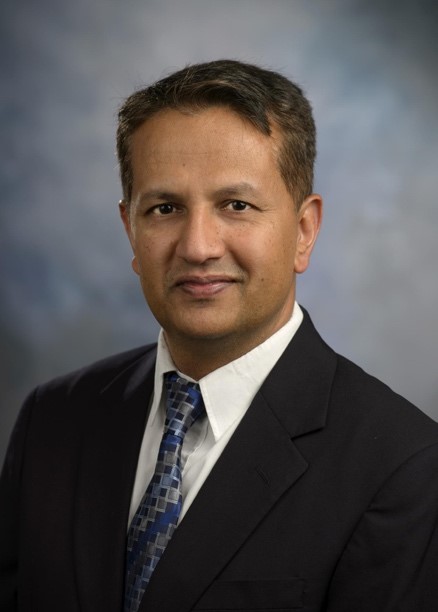 Mukesh Dhamala (Faculty Mentor, Associate Professor, Georgia State, Physics)
Mukesh Dhamala (Faculty Mentor, Associate Professor, Georgia State, Physics)
Dr. Dhamala's laboratory at Georgia State uses neuroimaging (fMRI, EEG, iEEG, and other MRI-based) techniques and quantitative science approaches to investigate the neural basis of cognitive functions and their impairments by neurological and psychiatric disorders. The specific areas of current interest include: perceptual decision-making, human creativity, neural oscillations, large-scale network activities, Granger causality and other novel methods for brain data analysis, and modeling of time-delayed coupled oscillators. In the last five years, Dr. Dhamala's NeuroPhysics Lab has trained about a dozen undergraduate students from diverse backgrounds in neuroscience research. The undergraduate students have conducted neuroimaging experiments, analyzed the behavioral and brain data, and some successfully helped turn their research work into peer-reviewed publications. Additionally, about 20 undergraduate students with diverse academic majors from various local institutions take Dr. Dhamala's functional neuroimaging course every fall semester and participate in neuroimaging literature review and brain data analysis training.
A REU student recruited to work in the Dhamala NeuroPhysics Laboratory at Georgia State University will investigate the effects of video game playing on brain sensorimotor decision-making processes. The project will involve (i) the re-analysis of already collected diffusion and functional MRI data from video-gamers and non-gamers, and (ii) designing a similar new experiment with sensorimotor decision-making tasks to collect some EEG data from participants undergoing training with video games. The findings from the EEG experiment are expected to go beyond the fMRI results and resolve the timings and features of neural oscillations in the subprocesses (sensation, perception, perceptual decision and motor action) of a sensorimotor decision making process. http://www.physics.gsu.edu/dhamala/Research_Dhamala.html
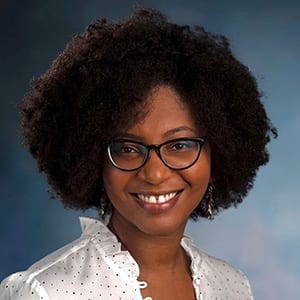 Vonetta Dotson (Faculty Mentor, Associate Professor, Georgia State, Gerontology, Psychology)
Vonetta Dotson (Faculty Mentor, Associate Professor, Georgia State, Gerontology, Psychology)
Dr. Dotson’s laboratory uses neuroimaging and behavioral techniques to examine the interaction of psychological disorders such as depression with cognitive and brain aging. This includes work focused on the impact of exercise on depression-related cognitive and brain changes in older adults. The lab focuses on applying a health disparities element to this work, given the paucity of cognitive neuroscience studies focusing on ethnic and racially diverse samples, and the vulnerability of older ethnic minorities to a variety of physical and mental health conditions. This research has the potential to transform the diagnosis and treatment of mood and neuropsychological disorders in diverse older adults. Dr. Dotson is fully committed to providing REU participants the opportunity to be involved in the research in her lab. REU participants who have an interest in clinical applications of the work will also have the opportunity to shadow in the Georgia State University Brain Health Clinic, which Dr. Dotson directs (brainhealth.gsu.edu). Dr. Dotson’s students have been quite successful in publishing (they have had as many as 17 publications at the time of graduation), presenting at national and international conferences, receiving grant support (e.g., NIH F31, APA Early Career Award), and matching at top internship and postdoctoral fellowship sites (e.g., Emory University). She has worked with undergraduate research volunteers throughout her 12 years as an independent researcher. All of have been successful in admissions into graduate or medical school, and many have been co-authors on papers and/or conference presentations.
The student will have the opportunity to work with existing cognitive and neuroimaging date in the lab or on one of the lab’s ongoing projects related to either 1) exercise to improve cognitive, mood, and brain outcomes in Black older adults with vascular depression, 2) predictors of resilience to Alzheimer’s disease in centenarians and their offspring, or 3) improving brain health in college students through exercise and cognitive training. The student will have the opportunity to learn how to administer cognitive tests and psychological measures, analyze neuroimaging data (which can include brain volumes or cortical thickness, resting state functional connectivity, or white matter lesions), use a community-engaged research framework in ethnic minority and older adult communities, and perform basic statistical analyses. https://psychology.gsu.edu/profile/vonetta-dotson/
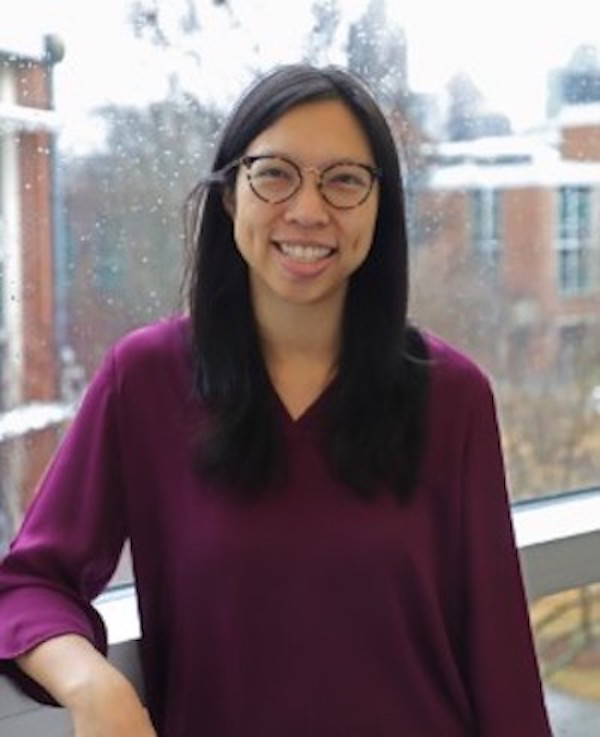 Ming-fai Fong (Faculty Mentor, Assistant Professor, Georgia Tech/Emory, Biomedical Engineering)
Ming-fai Fong (Faculty Mentor, Assistant Professor, Georgia Tech/Emory, Biomedical Engineering)
The Fong lab at Georgia Tech seeks to understand how sensory experience and deprivation alter neural circuits, and uses transient experiential manipulations as a neuroengineering tool to drive long-lasting plasticity. Present research work focuses on treating neurodevelopment forms of blindness, how loss of vision alters other sensory modalities, and promoting plasticity beyond canonical critical periods. We primarily use in vivo or ex vivo electrophysiology in conjunction with optogenetics, pharmacology, and manipulations to visual experience in rodent models.
REU students would be involved in electrophysiological data collection/analysis and histological processing of ocular or neural tissue for ongoing studies in the lab. They will also be expected to contribute to weekly lab meetings, and will be encouraged to participate in the lab’s outreach efforts with the local blind and visually-impaired community. In this way, students will be able to contribute to both immediate-impact as well as long-term development of projects.
Website: fong-lab.github.io
 Tricia King (Faculty Mentor, Professor, Georgia State, Psychology)
Tricia King (Faculty Mentor, Professor, Georgia State, Psychology)
Dr. King is a clinical neuropsychologist at Georgia State. Her laboratory uses a variety of complementary techniques (including MRI) to investigate the biopsychosocial factors that contribute to optimal adaptive outcomes after neurodevelopmental disruption (e.g., childhood brain trauma, disease and/or treatment). Her interdisciplinary research has been transformative in that it has revealed unexpected findings that have pushed the field of cancer survivorship in new directions. Most recently, Dr. King and her team have identified single nucleotide polymorphism (SNP) variants that predict cognitive impairment in pediatric cerebellar brain tumor survivors following chemoradiation treatment for medulloblastoma. This work demonstrates the role of the individual patient’s underlying genome in recovery and response to treatment and long-term cognitive outcomes to inform precision medicine. In addition, Dr. King has revealed more nuanced understandings of cognitive impairments in survivors that refine and go beyond the zeitgeist of common brain-behavior relationships. As a mentor, she has directed 65 undergraduate trainees in biomedical sciences (86% women, 70% underrepresented groups), on average 6 undergraduate and post baccalaureate trainees per year. Thirty percent have completed Ph.D.’s in Neuroscience or Clinical Psychology, attended medical school or worked in the biotechnology industry.
Projects available will be dependent upon the students interests and prior experiences. Research may involve structural or functional neuroimaging, neuropsychological performance, and/or self-report or caregiver report in healthy controls or young adult survivors of pediatric brain tumors. http://sites.gsu.edu/kinglab/
 Apurva Ratan Murty (Faculty Mentor, Assistant Professor, Georgia Tech, Psychology)
Apurva Ratan Murty (Faculty Mentor, Assistant Professor, Georgia Tech, Psychology)
Dr Murty is a cognitive computational neuroscientist and heads the Vision, Cognition, and Computation Lab at Georgia Tech (www.murtylab.com). The lab’s core mission is to reverse-engineer the neural codes and algorithms that support human visual intelligence. Research in the lab spans three main areas: (1) mapping the functional organization of the human visual system, (2) identifying the neurobiological markers of neurological disorders (color blindness, prosopagnosia etc.), and (3) designing brain-inspired algorithms to improve artificial intelligence. This dynamic and interdisciplinary environment offers students a unique opportunity to bridge breakthroughs in neuroscience with next-generation AI, driving both fields forward. Training in the lab will span a wide range of topics, including neuroimaging methods (fMRI, MEG, EEG, intracranial recordings), machine learning, neural-network modeling, behavioral and psychological data analysis etc.
REU participants in the Vision, Cognition, and Computation Lab can tailor their training experience to align with their interests, choosing to focus on experimental neuroscience, computational modeling, or a combination of both. The lab has a history of mentoring undergraduate researchers from diverse disciplines—including neuroscience, psychology, computer science, machine learning, biomedical engineering, and quantitative biosciences. The lab provides a rich, interdisciplinary environment where students can thrive and develop skills at the bleeding edge of cognitive neuroscience and AI. Many of our students have earned prestigious awards, competitive internships and have successfully transitioned to impactful careers, pursuing advanced degrees in top academic programs or taking on innovative roles in industry.
Learn more: www.murtylab.com
 Machelle Pardue (Faculty Mentor, Professor, Georgia Tech, Biomedical Engineering)
Machelle Pardue (Faculty Mentor, Professor, Georgia Tech, Biomedical Engineering)
Dr. Pardue’s research program is centered on understanding the mechanisms of retinal disease and developing neuroprotective or restorative treatments. Her lab uses a number of functional, structural and molecular assessments to evaluate the progression of retinal degenerations, diabetic retinopathy, glaucoma, and myopia in rodent models. With this characterization of the disease progression, she is well poised to study various pharmacological and rehabilitative interventions. Dr. Pardue is passionate about teaching and mentoring. She has mentored over 45 undergraduate students. These students worked with graduate and post-doctoral fellows to learn laboratory skills and contribute to an independent project. Over 30 students earned authorship on publications, including 5 that wrote first-author papers. In addition, 14 of these students had the opportunity to present their work at a regional or national conference.
Diabetic retinopathy is a complication of diabetes that is clinically characterized as a microvascular disease. Patients with diabetes are instructed to get a yearly fundus exam - a picture of the inside of the eye - to evaluate retinal blood vessels that become abnormal with disease progression. The Pardue Lab is developing novel ways for early detection of diabetic retinopathy. Using a non-invasive electrophysiological test that records the neural activity of the retina, they have demonstrated that the electrical response of the retina is delayed prior to vascular changes detected with fundus photography. Since neural activity can be affected by vascular health, the Pardue lab aims to evaluate neurovascular coupling in the early stages of diabetic retinopathy. To do this, high-resolution images of the retina using ocular coherence tomography with angiography will be collected from human subjects with and without diabetes. Images will be analyzed for abnormalities in different vascular layers of the retina and correlated with the functional deficit. https://pardue.gatech.edu/
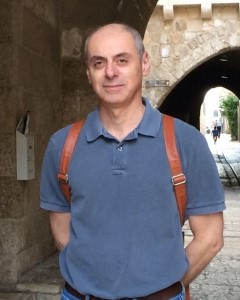 Boris Prilutsky (Faculty Mentor, Professor, Georgia Tech, Biological Sciences)
Boris Prilutsky (Faculty Mentor, Professor, Georgia Tech, Biological Sciences)
Dr. Prilutsky’s laboratory at Georgia Tech conducts transformative research in biomechanics and neural control of reaching movements in humans and locomotion in quadrupedal animals. The lab investigates the role of sensory feedback and central commands from the brain and spinal pattern generators on accuracy and precision of motor actions. Cutting-edge experimental methods include a bimanual exoskeleton Kinarm that allows recordings and perturbations of arm reaching and tracing movements in the horizontal plane, 3D motion capture, surface electromyography and electroencephalography (in collaboration with Dr. Shinohara and Dr. Wheaton); chronic electrophysiological recordings and manipulation of proprioceptive signals by pharmacological, electrophysiological, surgical and (potentially) optogenetic methods in quadrupedal animals. Over 30 undergraduate students (~50% of whom are underrepresented minorities or women) have taken part in various research projects in the lab. Approximately 30% of the students presented results of their work in the Georgia Tech Undergraduate Research Symposium, Regional or National Meetings. Five undergraduate students (David Ashley, Brad Farrell, Mohamed Islam, Celina Zhang and Gina Grenga) were co-authors of peer-reviewed papers. Three undergraduate students (Denise Larkins, Allison Cerutti and Raeeva Ahmed) received Presidential Undergraduate Research Award, and another undergraduate Celina Zhang received McCallum Scholar research award in Biology.
The goal of the project is to develop and investigate an animal model to study somatosensory control of dynamic stability during locomotion. Our preliminary studies in freely locomoting cats on a split-belt treadmill (Park et al., J Exp Biol 222(Pt 14): jeb198648, 2019; Latash et al., J R Soc Interface 17: 20200547, 2020) demonstrated that motion of the body center of mass in the frontal plane with respect to the area of support as well as body dynamic stability are remarkably similar to those in humans performing similar locomotor tasks. We plan to manipulate cutaneous and proprioceptive sensory feedback by pharmacological and electrophysiological methods during walking in cats to understand how sensory feedback contributes to maintenance of balance and stability during walking in cats. We also plan to perform similar studies in mutant mice lacking proprioception in collaboration with Dr. Turgay Akay from Dalhousie University. These studies have important implications for understanding and prevention of falls in people with neurologic and musculoskeletal conditions. https://sites.gatech.edu/bmmc/
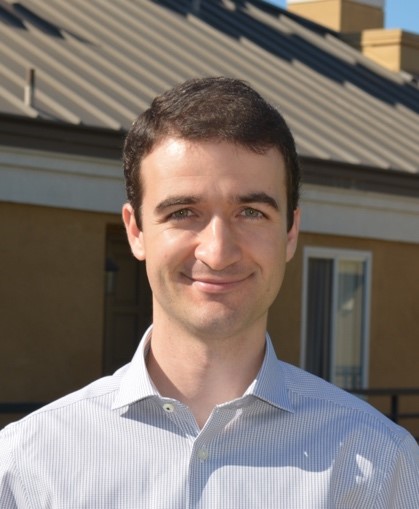 Dobromir Rahnev (Faculty Mentor, Associate Professor, Georgia Tech, Psychology)
Dobromir Rahnev (Faculty Mentor, Associate Professor, Georgia Tech, Psychology)
Dr. Rahnev’s laboratory at Georgia Tech focuses on perceptual decision making: the process of choosing a course of action based on available sensory information. The topic bridges low-level sensory processing and high-level cognitive thought. Dr. Rahnev uses a wide variety of methods such as fMRI, TMS, simultaneous TMS-fMRI, psychophysics, and advanced computational modeling. Undergraduate students participate in all aspects of the research: they help to collect fMRI, TMS, and behavioral data; they learn how to analyze the data using Matlab; and some advanced students even learn how to fit computational models to the data and compare them by employing formal model comparison methods.
Students will have the opportunity to join in on an existing lab project or develop a new project related to perceptual decision making or visual metacognition. Interested students should consult our lab manual (https://bit.ly/RahnevLabManual) for more information on the lab, including a continually updated list of project ideas. https://rahnevlab.gatech.edu
 Eric Schumacher (Faculty Mentor, Professor, Georgia Tech, Psychology)
Eric Schumacher (Faculty Mentor, Professor, Georgia Tech, Psychology)
Dr. Schumacher’s laboratory uses behavioral, neuroimaging, and neuro-simulation techniques to investigate the underlying brain networks mediating human attention, memory, and cognitive control. REU participants will collaborate on research about how changes in activation underly human thought and behavior. He has mentored over 50 undergraduate students in his laboratory since arriving at Georgia Tech in 2004. These students have come from a diverse set of majors (viz., biology, chemistry, computer science, literature, neuroscience, nuclear imaging, mechanical engineering, and psychology). Dr. Schumacher’s laboratory has a training program for undergraduates where they learn about psychology experiment programming, fMRI data processing and analytics, and the theoretical motivation of laboratory research in their first month in the lab. Undergraduates work closely with graduate students and post-docs and attend weekly lab meetings with Schumacher. Over 20 students have completed senior thesis projects in the laboratory. Six undergraduates have earned authorship on publications and over 30 have authored conference presentations.
Dr. Schumacher will work with an REU student to develop a project based on our shared interests. One possible idea is to investigate how focusing on the performance of one task may improve performance on that task but degrade performance on other tasks and that mind wandering may actually aid in switching tasks. http://control.gatech.edu/
 Minoru “Shino” Shinohara (Faculty Mentor, Associate Professor, Georgia Tech, Biological Sciences)
Minoru “Shino” Shinohara (Faculty Mentor, Associate Professor, Georgia Tech, Biological Sciences)
Dr. Shinohara’s laboratory at Georgia Tech aims to identify the neural/mechanical interventions and underlying mechanisms for improving motor skills and facilitating motor learning/rehabilitation using integrative approaches. His group uses electroencephalography (EEG), electromyography (EMG), and transcranial magnetic stimulation (TMS) to examine neural activity, motor output, and memory with various interventions. His group also employ engineering approaches, such as robotics, to transform the basic scientific findings into applicable devices and strategies that can improve sensorimotor functions in aging and clinical populations. He typically mentors 2-4 undergraduate researchers every semester.
https://sites.gatech.edu/neuromuscularlab

Lena Ting (Faculty Mentor, Professor, Georgia Tech/Emory, Biomedical Engineering)
Dr. Ting’s laboratory at Emory focuses on the sensorimotor interactions between brain, body, and environment. Her work focuses on complex, whole body movements such as walking and balance with strong clinical relevance, as well as skilled movements involved in dance and sport.
Her lab uses a variety of techniques to understand how the nervous system controls movements, using measures of biomechanics, muscle activity using electromyograph (EMG), brain activity using electroencephalography (EEG), and robotic devices that interact with people. Recent projects include using transcranial magnetic stimulation (TMS) to disrupt balance control pathways and using a KINArm upper limb robotic device to perturb balance and record brain activity to understand cognitive-motor function. Her lab has developed several computational methods to show brain-body interactions in balance and gait in healthy and balance impaired individuals. Her work forms a foundation that researchers around the world are using to understand normal and impaired movement control in humans and animals as well as to develop better robotic devices that interact with people.
https://neuromechanicslab.emory.edu/

Ashley Ware (Faculty Mentor, Assistant Professor, Georgia State University, Psychology)
Dr. Ware is a clinical psychologist with specialization in neuropsychology. Over the past 10 years, Dr. Ware has demonstrated significant leadership in research and knowledge translation. She has held important leadership roles in multiple research programs from which she gained expertise in neurodevelopment, neural plasticity, neuroimaging, and neurological disorders, including traumatic brain injury and other neurological disorders. Dr. Ware has furthered the scientific understanding of how the brain changes across the lifespan in congenital and acquired brain injury and has translated these findings to improve patient treatment and outcomes. Her results are published in the premier peer-reviewed journals for her respective fields of study. Her research investigates predictors for persistent symptoms following mild brain injury (e.g., concussions). She uses both neuropsychological assessments and brain imaging in her research. A native of coastal North Carolina, Dr. Ware enjoys being on the beach and near water. She is a daily practitioner of reformer Pilates, and a lover of dogs (big and small).
REU students will actively engage in MRI data collection, quality assurance, processing, and analysis in clinical populations, including child and adult athletes with repetitive concussion or individuals with neurodevelopmental disorders. Ample archival data is available to students who show promise in drafting scientific abstracts and/or manuscripts. Studies also can contribute to ongoing studies, with authorship given to students whose provide notable/worthy contributions.
https://cas.gsu.edu/profile/ashley-l-ware/
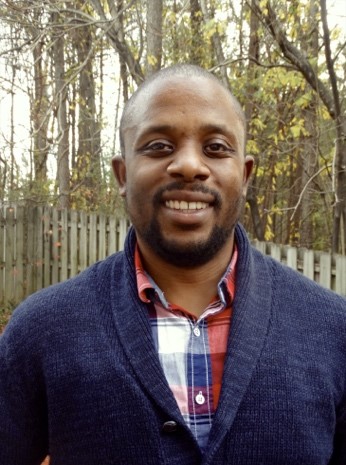 Lewis Wheaton (Faculty member, Professor, Georgia Tech Biological Sciences)
Lewis Wheaton (Faculty member, Professor, Georgia Tech Biological Sciences)
Dr. Wheaton’s lab at Georgia Tech seeks to understand the neurophysiology guiding skillful human-object interactions in upper extremity motor control. We use neuroimaging to identify anatomical and physiological circuits in humans that guide successful skilled behavior. Our clinical studies in upper limb amputation and stroke consider neural systems that can suffer injury or dysfunction related to deficits in skillful motor control, and how to utilize surrogate neural circuits in restorative motor therapies. These studies involve understanding relationships in neural activity, motor behavior, and function. Over the past 15 years directing the Cognitive Moton Control Lab, Dr. Wheaton has regularly mentored at least 3 undergraduate students per semester from varying academic backgrounds including psychology, engineering, neuroscience, and biology. These students work directly with Dr. Wheaton and a doctoral student in Applied Physiology to conduct studies.
Past undergraduate students have been active in research collecting and analyzing datasets related to motor learning through development or neural injury. These datasets have been helpful in guiding hypotheses for future studies, and often result in co-authorship in scientific publications.
https://biosciences.gatech.edu/people/Lewis-Wheaton | http://thecmclab.com
 Mark Wheeler (Faculty Mentor; Professor, Georgia Tech Psychology)
Mark Wheeler (Faculty Mentor; Professor, Georgia Tech Psychology)
Dr. Wheeler’s laboratory at Georgia Tech focuses on the neural representation of evidence supporting decisions about perceptions and memories, and how this representation may change in healthy aging. His research also investigates the impact of lifestyle factors such as sleep quality and physical activity on cognitive abilities in healthy aging. His research primarily uses fMRI combined with behavioral methods and cognitive modeling to learn about the relationship between brain and behavior. Each term, there are typically 3-6 undergraduate research assistants learning about the fundamentals of research. Student majors typically are psychology, neuroscience, computer science, and biomedical engineering. Advanced students often work on their own projects, and many have gone to graduate school. REU participants will have an opportunity to learn background literature, learn how to conduct standardized and custom cognitive, perceptual, and motor tests, engage in MRI and functional MRI data collection, and learn how to analyze and interpret the data.
Students will gain research experience related to functional neuroimaging, by collecting a small sample of data on motor behavior and analyzing the data.
